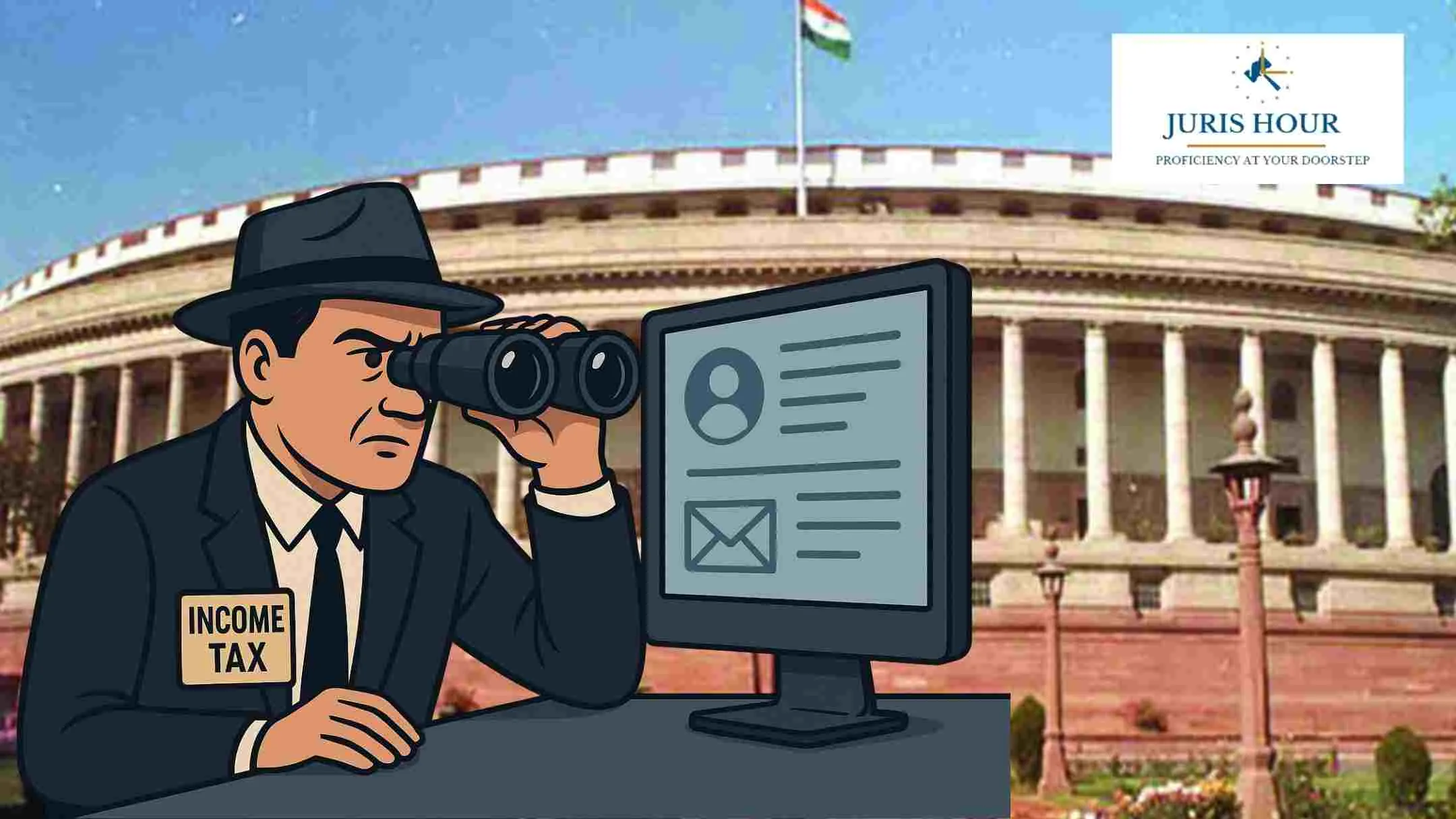Lok Sabha Panel Retains Provisions Allowing Tax Officers to Access Emails and Social Media in Raids
In a move that has sparked fresh debate over privacy and state surveillance, the Parliamentary Select Committee reviewing the proposed Income Tax Bill 2025 has upheld provisions that empower tax officials to forcibly access individuals’ private digital spaces—including emails, social media accounts, and cloud storage—during search and seizure operations.
The contentious clauses have been retained despite objections from tax experts and civil society members consulted by the Committee, which is chaired by BJP MP Baijayant Panda. The Committee’s voluminous 4,575-page report was tabled in the Lok Sabha on Monday, July 21.
Expanded Digital Access for Tax Officials
The proposed Income Tax Bill 2025, introduced in Parliament in February this year, seeks to replace the current Income Tax Act of 1961 with a streamlined, simplified framework. However, the Bill also introduces sweeping powers for tax authorities when conducting investigations.
Under the new provisions, taxpayers are required to assist officials in gaining access to their electronic records—including by sharing passwords and access codes. In cases where these credentials are not provided, officials are permitted to override access codes to obtain the data.
The definition of “electronic systems” under the Bill is broad and includes everything from computer systems and emails to virtual digital spaces such as social media accounts, investment platforms, online banking, and cloud servers.
Concerns Over Privacy and Accountability
Several stakeholders consulted by the Committee expressed alarm at these provisions. They recommended that the ability to access private accounts—especially social media—be restricted or at least made conditional upon a clear justification recorded in writing. Further, they urged the Committee to ensure that any information accessed should be used strictly for tax-related investigations.
Despite these concerns, the Select Committee has dismissed the suggestions, arguing that such digital access is necessary for effective enforcement. The report cited instances where taxpayers have used encrypted apps and emails to conceal unreported financial activities.
“Incriminating material is often found in WhatsApp messages, emails, and other digital records,” the Committee said. “Taxpayers frequently refuse to share credentials, which hampers investigation.”
It further added that requiring officials to record “tangible reasons” for access would introduce procedural hurdles that undermine the effectiveness of searches, asserting that such a safeguard is “not feasible”.
Push for Simplification
While the digital surveillance powers have drawn scrutiny, the Bill has also been praised for its structural overhaul of India’s complex tax legislation. The draft law reduces the overall volume of legal text from over 5.1 lakh words to around 2.6 lakh.
The number of chapters is halved—from 47 to 23—and sections reduced from 819 to 536. To enhance clarity, the number of explanatory tables has been expanded from 18 to 57, and mathematical formulae from 6 to 46.
“The redrafting is more concise and accessible,” the report noted. “Redundancies have been removed, and cross-referencing between sections minimized, without altering core policy principles.”
The Road Ahead
The government has projected the Bill as a landmark reform that modernizes India’s income tax system. However, the endorsement of invasive digital search provisions is likely to become a flashpoint in Parliament and beyond, with critics warning of the erosion of taxpayer rights and digital privacy.
With the report now before the Lok Sabha, the debate on how to strike a balance between efficient tax administration and individual freedoms is far from over.
Read More: DGGST to Host Nationwide Interactive Session on GST Demand Notices and Adjudication Reforms

